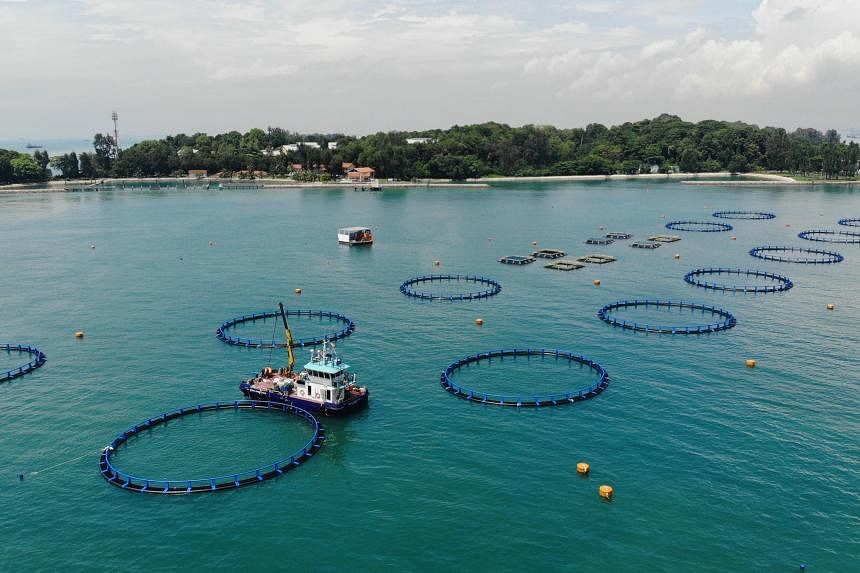SINGAPORE – There is renewed hope for businesses farming Asian sea bass in Singapore, now that a new vaccine has been developed to protect the fish from a deadly virus, which is endemic in local waters.
Called the scale drop disease virus (SDDV), it can kill up to 70 per cent of a pen of Asian sea bass, or barramundi, at a time.
With the new vaccine, the survivability rate of the fish is increased by around 75 per cent, should they be infected with the virus.
While it cannot be transmitted to humans, the virus causes the fish to shed scales and develop skin lesions.
Fish farms in the Johor Strait, where the majority of the businesses are located, have occasionally reported signs of the virus, which affects barramundi and yellowfin seabream.
An SDDV outbreak in June 2023 had forced the Barramundi Group to temporarily stop farming in the southern waters.
The company told The Straits Times in July 2023 that the virus had caused “significant mortalities and financial losses” for its operations in Singapore. It recorded a loss of $31.9 million for financial year 2022.
Eventually, the company decided to exit farming in Singapore and shift its operations to Brunei, its head of strategy and operations Tan Ying Quan told ST in May.
But the company has continued its research and development work in Singapore. This includes developing fish vaccines through its subsidiary Uvaxx, and a selective breeding programme to rear Asian sea bass that grows faster and is resistant to SDDV.
Researchers from Uvaxx and the Agency for Science, Technology and Research (A*Star) have developed the epitope-based vaccine, which has fewer side effects compared with traditional vaccines, said Uvaxx and A*Star in a joint statement on July 19.
The new vaccine contains epitopes or proteins from specific portions of the SDDV that can be recognised by the fish’s immune system once it is injected. These proteins can help the system elicit a targeted immune response to fight the virus.
Conventional vaccines use whole live viruses or inactivated viruses, which tend to bring about more side effects.
In addition, conventional vaccines require the growing and processing of whole pathogens, whereas the epitope-based vaccines are created by working with only specific peptides, which is often more cost-effective and can leverage traditional chemical technologies for scalable mass production, the statement said.

